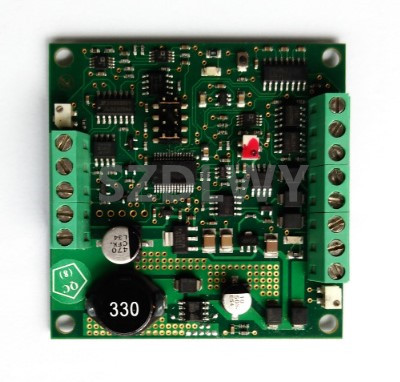ProductProduct
Contact Us
86-0755-88605932
- 電話:0755-88605932
手機:13798258190
郵箱:szdlwy@163.com
網址:m.ydfwloj.cn
地址:廣東省、深圳市、龍崗區(qū)
Zirconia sensor transmitter O2I-FLEX-092

1. Product Description of O2I-Flex-092 Transmitter Board for Zirconia Oxygen Sensor
The O2I-Flex-092 interface board provides the necessary power to the electronic components, and the SST dynamic oxygen sensor can be set by the user to set the range 0-25% and 0-100%. The entire measuring range is linear. The factory default is 0-25%. When configuring 0-100% range, customers can customize the analog output range to meet the actual application. The output can be configured as: 4-20mA and 0-10VDC or RS232 interface
2. O2I-Flex-092 characteristics of zirconia oxygen sensor transmitter board
1) Provide the necessary power supply circuit and control the SST dynamic oxygen sensor
2) High precision, linear output
3) Range is optional: 0-25% and 0-100% O2 or any range can be adjusted through RS232 in 0-100% mode.
4) Multiple output modes: 4-20mA, 0-10VDC and RS232 communication interface
5) Externally triggered automatic or manual calibration; it can also be initialized by keys on the board.
6) It can be in air (20.7% O2) or any other gas with known oxygen concentration.
7) The periodic 3.3VDC logic output can diagnose the working status by directly monitoring the pump cycle
Three, zirconia oxygen sensor transmitter board O2I-Flex-092 product specifications
Maximum rating
Supply voltage 24VDC± 10%
Power consumption 600mA max @ 24VDC 4~20mA
Load 100-600Ω
Temperature requirements
Storage temperature-10 to 70 ° C
Operating temperature-10 to 70 ° C
4. Application of O2I-Flex-092 for zirconia oxygen sensor transmitter board:
Emission control, including oil, natural gas, biomass and other boiler applications
Compost
Air quality monitoring in laboratories and buildings, including personal safety in confined spaces
Industrial process control, such as: gas mixture during welding and steelmaking
Oxygen system
Medical treatment
Scientific research, such as respiration studies of microorganisms or organisms, plants and animals
Food and beverage packaging low-oxygen applications, including fermentation, rust and corrosion protection, inert gas purge
The O2I-Flex-092 interface board provides the necessary power to the electronic components, and the SST dynamic oxygen sensor can be set by the user to set the range 0-25% and 0-100%. The entire measuring range is linear. The factory default is 0-25%. When configuring 0-100% range, customers can customize the analog output range to meet the actual application. The output can be configured as: 4-20mA and 0-10VDC or RS232 interface
2. O2I-Flex-092 characteristics of zirconia oxygen sensor transmitter board
1) Provide the necessary power supply circuit and control the SST dynamic oxygen sensor
2) High precision, linear output
3) Range is optional: 0-25% and 0-100% O2 or any range can be adjusted through RS232 in 0-100% mode.
4) Multiple output modes: 4-20mA, 0-10VDC and RS232 communication interface
5) Externally triggered automatic or manual calibration; it can also be initialized by keys on the board.
6) It can be in air (20.7% O2) or any other gas with known oxygen concentration.
7) The periodic 3.3VDC logic output can diagnose the working status by directly monitoring the pump cycle
Three, zirconia oxygen sensor transmitter board O2I-Flex-092 product specifications
Maximum rating
Supply voltage 24VDC± 10%
Power consumption 600mA max @ 24VDC 4~20mA
Load 100-600Ω
Temperature requirements
Storage temperature-10 to 70 ° C
Operating temperature-10 to 70 ° C
4. Application of O2I-Flex-092 for zirconia oxygen sensor transmitter board:
Emission control, including oil, natural gas, biomass and other boiler applications
Compost
Air quality monitoring in laboratories and buildings, including personal safety in confined spaces
Industrial process control, such as: gas mixture during welding and steelmaking
Oxygen system
Medical treatment
Scientific research, such as respiration studies of microorganisms or organisms, plants and animals
Food and beverage packaging low-oxygen applications, including fermentation, rust and corrosion protection, inert gas purge
Previous : Pressure sensor 26PCAFA6D
Next : Humidity sensor HIH-5030-001


